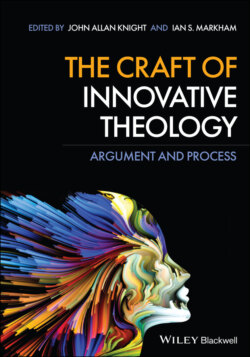Читать книгу The Craft of Innovative Theology - Группа авторов - Страница 50
Proslavery Arguments Concerning Christian Charity and the Golden Rule
Оглавление(See Box 3.4.) Biblical scholar Allen Callahan notes that nothing was more troublesome for proslavery ideologues than the Golden Rule. Some believed it simply was wrong. Other prominent proslavery advocates, such as Richard Furman, minimized its meaning.10 An influential South Carolinian whose organizational ideas ultimately helped create the organizational structures of the SBC, Furman endorsed slavery as part of divine law. He argued that the Golden Rule was never meant to go against the “order of things, which the Divine government has established.”11 Furman believed that if slavery was legal and in accordance with the Bible, then a slave master was not obligated to do any more than what he or she as a slave would wish to be done to them.12 Furman’s views represented a stance taken consistently by proslavery advocates. The Golden Rule only applied in a limited way, and social status determined how an individual or class of people should be treated. This was especially so because slavery was in accord with divine law.
Box 3.4
This is important historical research. The author will bring together the ways in which proslavery Christians managed to evade the simple logic that the Golden Rule makes it impossible for you to support slavery.
James Henley Thornwell argued in 1850 that the scriptures demand only that slaves and servants be given that which is equal and just. The Golden Rule, then, “simply requires, in the case of slavery, that we should treat our slaves as we should feel that we had a right to be treated if we were slaves ourselves.”13 Jesus’s teachings on charity and the Golden Rule were seen as having only limited application based on social status and were not universal.
Because many white Americans had stigmatized African Americans racially as inferior, it is not difficult to understand why they would not desire to extend Christian charitable teachings to them in a universal way. Many white Christians did not see people of African descent as similar to them. Instead, they saw them as alien, foreign, and subhuman. Martha Nussbaum notes that people show compassion to those to whom they feel have possibilities and vulnerabilities similar to themselves.14 According to Nussbaum, “One makes sense of the suffering by recognizing that one might encounter such a reversal; one estimates its meaning in part by thinking what it would mean to encounter that oneself; and one sees oneself, in the process, as one to whom such things might in fact happen.”15 But if a white person could not imagine being mistreated and reduced to slavery in a society that identified with white superiority, then it would be very difficult for many to imagine having sufferings and vulnerabilities “similar to the sufferer.”16
Because whites dominated society, they knew they would not be enslaved. Those antislavery advocates who argued for Christian charity and the Golden Rule had the imagination to think about how they would feel if they were enslaved, and they believed that Christian teachings on charity had broad application. They may even have imagined their own vulnerability, guilt, and complicity if they were to acquiesce to the continued existence of slavery in American society. But proslavery advocates did not give ground on the treatment of slaves, let alone on whether the institution of slavery itself was immoral. Advocates of white supremacy certainly were affirmed in their beliefs by the 1857 Dred Scott decision in which the Supreme Court famously ruled that all African Americans were racially stigmatized and thus could be treated as “ordinary articles of merchandise.”17
American religious scholar Mark Noll has described in great detail the theological crisis surrounding the Civil War, slavery, and biblical interpretation. This theological crisis resulted, in part, in “an inability to act on biblical teaching about the full humanity of all people, regardless of race.”18 Christian white Americans’ attitudes were so deeply embedded in beliefs about the inferiority of African Americans that their interpretations of the Bible ensured the continuation of a racial crisis that was biblically justified long after the Civil War had ended.
